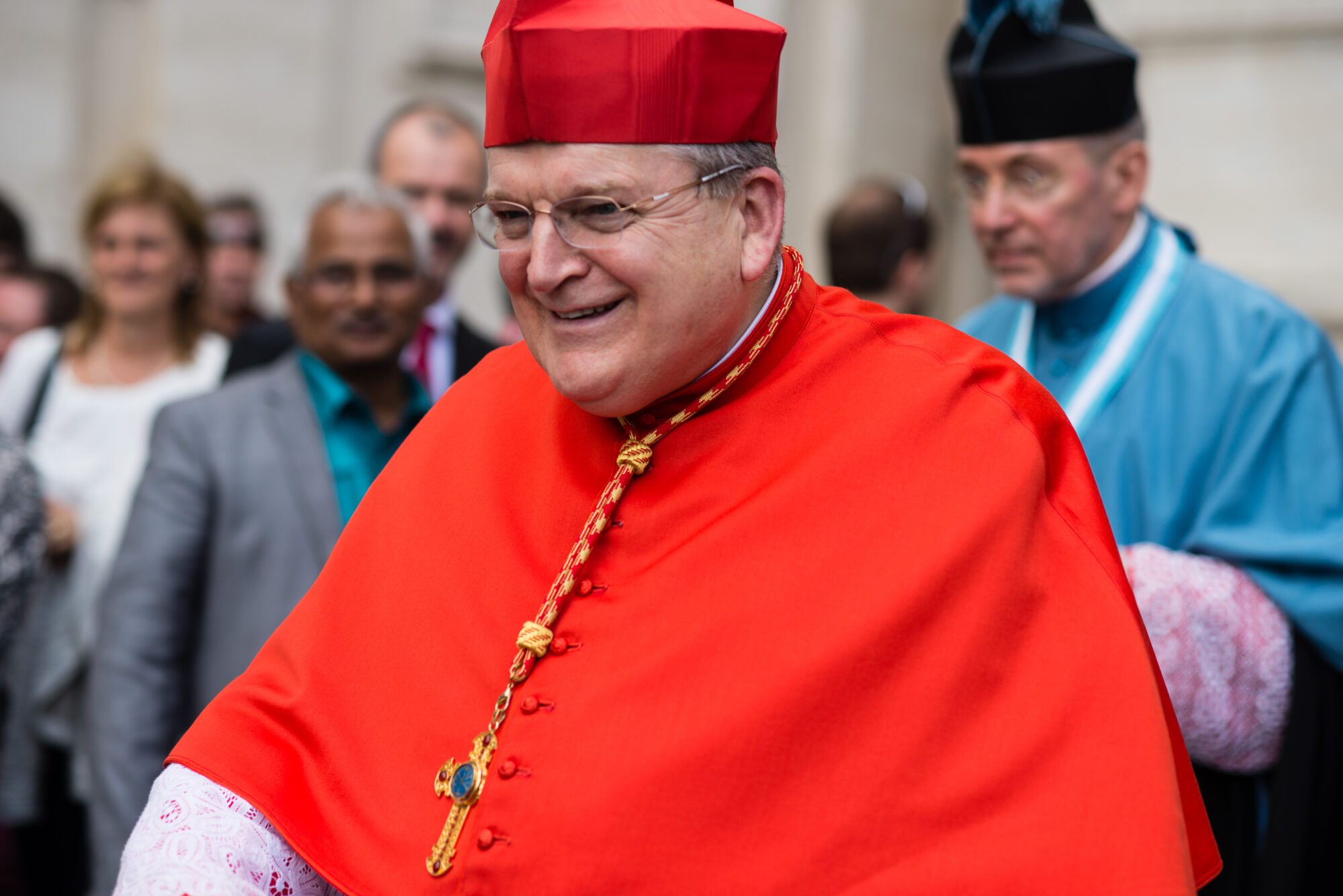
Cardinal Raymond Burke
Photo: PIGAMA / Shutterstock.com
Pope Francis reportedly plans to evict conservative American Cardinal Raymond Leo Burke from his apartment in Rome and cut off his salary as an apparent punishment for the high-ranking Church official who has been fiercely critical of the Francis pontificate.
The exact reasons for the move are not entirely clear, but some reports, such as a report from the Associated Press, have claimed that Pope Francis held a meeting last week indicating that he views 75-year-old Cardinal Burke as a source of “disunity” within the Catholic Church.
At the meeting, which is said to have been held at the Vatican offices on November 20th, Pope Francis allegedly justified the move by claiming that Cardinal Burke was using his privileges against the Church. Cardinal Burke, however, has not been informed of the Pope’s decision as of Tuesday, November 28th.
The reported punishment of Cardinal Burke comes after years of criticism by the American prelate of the policies of Pope Francis.
Viewed as one of the most senior conservative and traditionalist members of the Catholic clergy, Burke has questioned Pope Francis directly, alongside other conservative Cardinals, by sending him ‘dubia,’ or formal questions on doctrinal matters.
In October of this year, Cardinal Burke, along with Cardinals Walter Brandmüller, Juan Sandoval Íñiguez, Robert Sarah, and Joseph Zen, submitted questions to Pope Francis regarding same-sex union blessings, the ordination of women as priests, repentance as a condition for absolution, and more.
Several of the issues were topics of discussion at the Synod on Synodality, a series of meetings of clergy and lay people on the direction of the Church and how it is governed.
Pope Francis responded to the Cardinals on same-sex union blessings, saying that marriage is between a man and a woman, but left it open as to whether or not same-sex couples could receive blessings, provided they were not mistaken for marriage.
Cardinal Burke has also been critical of the concept of ‘synodality,’ which has been pushed by Pope Francis as a way for the church to listen to the opinions of the laity.
In August, a booklet regarding the synodal process was published with a foreword by Cardinal Burke, which stated that the synodal process could sow confusion within the Catholic Church.
“We are told that the Church which we profess, in communion with our ancestors in the faith from the time of the Apostles, to be One, Holy, Catholic, and Apostolic is now to be defined by synodality, a term which has no history in the doctrine of the Church and for which there is no reasonable definition,” Cardinal Burke wrote.
According to Cardinal Burke, the terms ‘synodal’ and ‘synodality’ “have become slogans behind which a revolution is at work to radically change the Church’s self-understanding, in accord with a contemporary ideology which denies much of what the Church has always taught and practised.”
Cardinal Burke later clarified that his words and questions to Pope Francis were not meant as an attack on the pope, saying, “They have nothing to do with the person of the Holy Father, and, in fact, by their nature, they are an expression of the veneration owed to the Petrine office and the successor of St. Peter.”
Criticism of Pope Francis by Cardinal Burke is not a recent phenomenon, as he has been outspoken for years, with some speculating that his prior remarks may have led to Pope Francis removing him as head of the top Vatican court in 2014.
The reported papal decision regarding Cardinal Burke comes just weeks after another prominent American conservative cleric, Bishop Joseph Strickland, was removed from his post as Bishop of Tyler, Texas, by Pope Francis.
Like Burke, Bishop Strickland is an outspoken critic of the push for progressive reforms within the Church and has previously stated, “I believe Pope Francis is the pope, but it is time for me to say that I reject his program of undermining the Deposit of Faith. Follow Jesus.”
